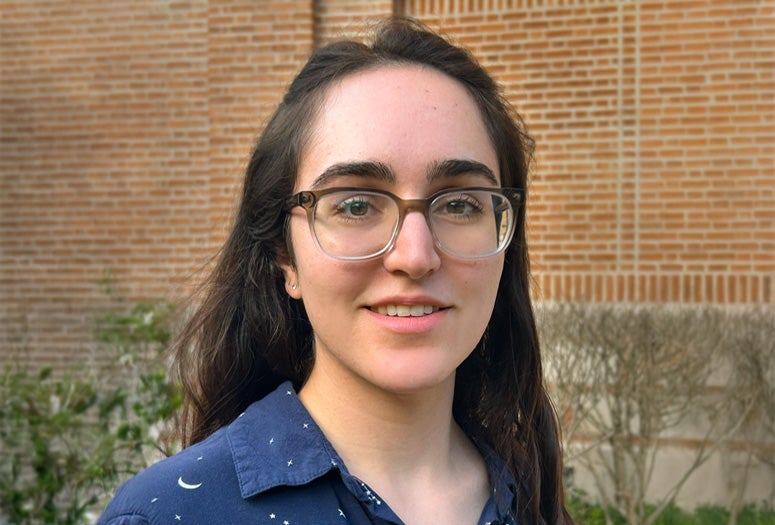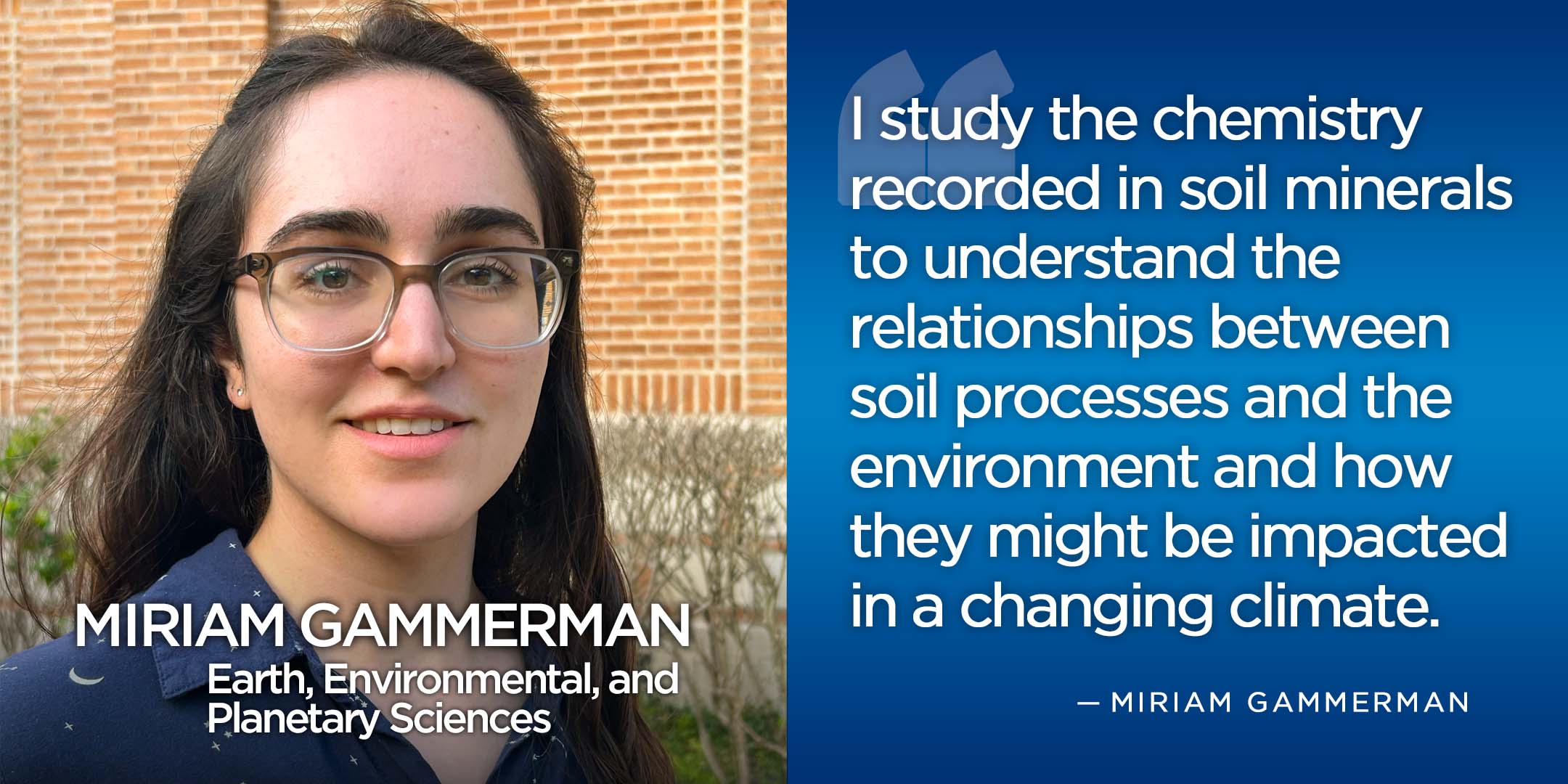Meet Miriam
- Department: Earth, Environmental, and Planetary Sciences
- Year in Graduate School: 3rd year
- Expected Graduation Date: 2027
- Degree: PhD
- Hometown: Miami, Florida
Q: What is the overall problem your thesis will help to address?
A: Soil stores large amounts of carbon, playing a critical role in the global carbon cycle that regulates Earth’s climate. I study the chemistry recorded in soil minerals to understand the relationships between soil processes and the environment and how they might be impacted in a changing climate.
Q: Can you add more scholarly depth about your thesis topic?
A: Soil is the largest terrestrial reservoir of carbon, and pedogenic carbonates are of particular significance due to their stability, long residence times, and strength as an archive of soil water chemistry. My work focuses on constraining the environmental variables controlling carbonate formation in soils and identifying their geochemical signatures. This will help inform interpretations of various soil-based paleoenvironmental proxies as well as predictions of how the soil inorganic carbon stock may respond to climate change.
Q: Are there any products from your work so far that you'd like to highlight?
A: My work is funded by an NSF grant awarded to my advisor, Dr. Mark Torres.
Q: What do you see as the most pressing sustainability challenge the world is facing?
A: There are so many incredible scientists researching Earth and the environment, but we need to better communicate and integrate our work with policy if we want to achieve meaningful sustainability goals and mitigate climate change.


